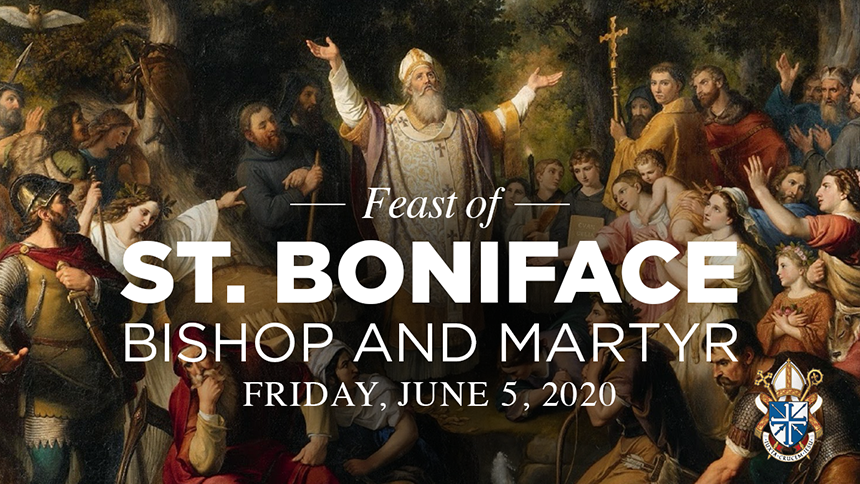
Today is the Feast of Saint Boniface, the 7-8th century English Benedictine monk who became the great Apostle of the Germans. Happy Feast Day! But why is the life, legacy and heavenly patronage of Saint Boniface of relevance to us today? We asked Michael Andrews, Chancellor of the Diocese of Lansing, to explain. Here’s what he had to say:
“Boniface sensed the first stirrings of his vocation as a very young child because he was inspired by the conversation of missionaries who visited his home. In families, it's important that children interact with people outside the immediate family who have deep faith and live with integrity, because these become important examples to follow.”
“As a Benedictine monk and priest, Boniface exemplified the Order's charism to combine prayer and work to witness to the primacy of God. The Rule of St. Benedict states “Prefer nothing to the love of Christ.” In other words, we must allow nothing to hinder us from loving Our Lord wholeheartedly.”
“One of the challenges Boniface faced in preaching to the German tribes was that a large number of them already considered themselves to be Christian. The problem was their Christian belief and practice had become watered down and insipid. Their clergy was lax, unformed, and disorganized. In fact, these Christians, clergy and laity alike, were relapsing into paganism and superstition. That's the reason behind the famous scene of Boniface cutting down the “Donareiche,” Thor's Oak. Sin in our lives must be met with drastic corrective action. Faith in Christ is to be lived in its entirety, leaving no room for any type of false god. To do any less is to put our salvation in jeopardy. This bold gesture called the people back to their senses, and abundant fruits of conversion, unity, and peace followed.”
“Along with establishing several dioceses in Germany, Boniface established monasteries as centers of prayer and culture. He fostered the encounter between the Germanic world and Christian Rome. His life's work had the effect of uniting England and Germany with Rome, which greatly strengthened the foundation of what would later become Christian Europe.”
“Bonfiace had many setbacks, but from childhood, he never wavered in his zeal for the Gospel. Even at eighty, he began a new missionary endeavor in Frisia (modern day Holland). There, with about fifty fellow monks, he was preparing to celebrate Confirmation, when he was attacked by a band of pagans. With calm, he forbade his followers from fighting saying, “cease, my sons, from fighting, give up warfare, for the witness of Scripture recommends that we do not give an eye for an eye but rather good for evil. Here is the long-awaited day, the time of our end has now come; courage in the Lord!'” Boniface is honored to this day as a great and courageous saint who transmitted the faith in all its purity, became an instrument of unity, and whose good works produced abundant fruit for centuries to come.”
Saint Boniface, pray for us!
